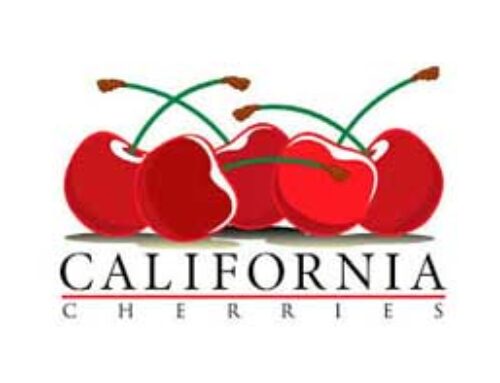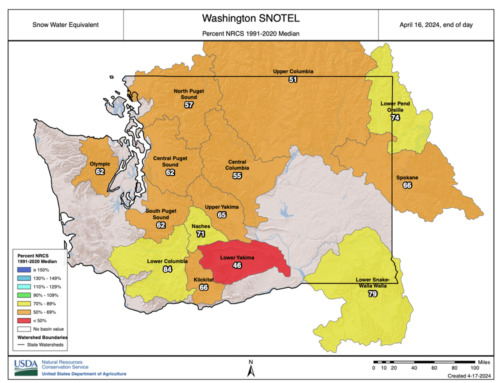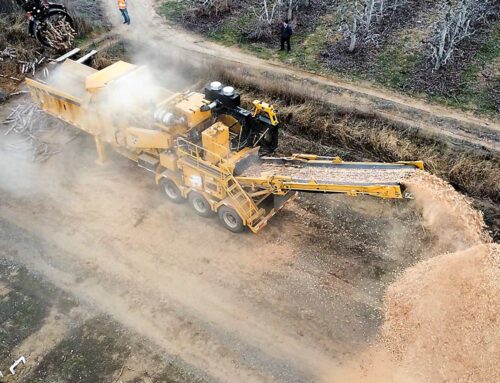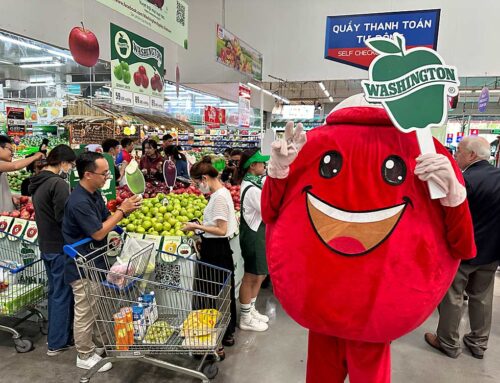
This post from March 13 has been updated with new statements from Washington State University and from Phytelligence.
Washington State University took a hard public stance in the dueling law suits with Phytelligence over rights to the new Cosmic Crisp apple.
“It takes a long time to prepare a new apple variety for market. WSU has been developing the Cosmic Crisp apple for the past 20 years,” said Chris Keane, WSU vice president for research.
“We have no choice but to vigorously defend our intellectual property rights against this serious breach of contract and infringement of our patent. Phytelligence’s actions threaten nearly two decades of work and the financial support provided by apple growers in the state of Washington. We owe it to all those companies that have followed the rules. We have to protect the significant investment the University and Washington growers have made to bring this new product to market,” Keane said.
WSU issued that statement March 14, the same day Phytelligence adopted a conciliatory tone, expressing optimism for a resolution.
Said Ken Hunt, chief executive officer of Phytelligence: “We recognize and value WSU’s broad and continuing support of Phytelligence; our concerns in this matter stem from the actions of a few individuals within the University. As such, concurrent to this legal filing, we are continuing to work directly with WSU to identify a mutually beneficial resolution. Given our long-standing relationship with WSU and our shared interests, we are optimistic this issue can be resolved to everyone’s benefit.”
At the core of WSU’s filings is the claim that Phytelligence violated a propagation agreement and infringed on WSU’s intellectual property rights by selling 135,000 WA-38 (Cosmic Crisp) trees to Evans Fruit Company in 2016 without a license. Phytelligence denies this completely.
Hunt says that those 135,000 trees “do not exist.” Phytelligence did propagate WA-38 for sale in anticipation of receiving a license, but “we didn’t ever graft Cosmic Crisp to the rootstock,” to make trees, he told Good Fruit Grower in March 14 interview. “We were unable to do any business with them because we were unable to secure the license.”
In actions against Phytelligence, WSU has filed its breach of contract countersuit in King County, Washington Superior Court and its patent infringement claim in the United States District Court for the Western District of Washington.
Here is WSU’s post:
PULLMAN, Wash. – Washington State University announced today that it has taken legal action in state and federal court against Phytelligence, an agricultural biotechnology company, for breach of contract and patent and trademark infringement. The litigation, which relates to the Cosmic Crisp apple, was filed to protect WSU’s intellectual property rights.
WSU researchers began developing the Cosmic Crisp brand apple in 1998 and applied for a plant patent for the tree that produces the Cosmic Crisp in 2012. The distinctive new apple varietal is expected to be widely available on store shelves by early next year.
According to the countersuits filed by WSU, Phytelligence had signed a research agreement with WSU to propagate the trees that produce Cosmic Crisp apples, subject to strict limits. While the company was allowed to grow the trees, it was explicitly prohibited from selling those trees without a license. The propagation agreement specified that any trees grown by Phytelligence would remain the property of the University unless the company later obtained a license to sell them to third parties.
Phytelligence never secured a license. However, in 2016, the company sold 135,000 Cosmic Crisp trees to an outside grower.
“It takes a long time to prepare a new apple variety for market. WSU has been developing the Cosmic Crisp apple for the past 20 years,” said Chris Keane, WSU vice president for research.
“We have no choice but to vigorously defend our intellectual property rights against this serious breach of contract and infringement of our patent. Phytelligence’s actions threaten nearly two decades of work and the financial support provided by apple growers in the state of Washington. We owe it to all those companies that have followed the rules. We have to protect the significant investment the University and Washington growers have made to bring this new product to market,” Keane said.
Nearly 5 million Cosmic Crisp trees are expected to be planted in 2018. The Cosmic Crisp apple is highly valued by growers and retailers for its large, juicy fruit; exceptional flavor; and slowness to brown after being cut. Equally important, the new varietal can be stored for more than a year and still maintain its distinctive texture and flavor.
WSU’s countersuits are in response to legal action Phytelligence brought against the University earlier this year. WSU has filed its breach of contract countersuit in King County, Washington Superior Court and its patent infringement claim in the United States District Court for the Western District of Washington.
Here is the new post from Phytelligence:
In late February, we filed a lawsuit against Washington State University (WSU) to protect Phytelligence’s right to propagate Cosmic Crisp apples and increase availability for Washington state growers.
In 2012, we were granted an option for a license from WSU or its agent to commercially propagate Cosmic Crisp. We have exercised that option; however, WSU and its agents have not yet provided the license to Phytelligence. Our efforts have been met with repeated delays and misinformation, ultimately preventing us from propagating Cosmic Crisp to date. During this time, Washington state growers have been increasingly frustrated with unnecessarily restricted access to Cosmic Crisp.
We recognize and value WSU’s broad and continuing support of Phytelligence; our concerns in this matter stem from the actions of a few individuals within the University. As such, concurrent to this legal filing, we are continuing to work directly with WSU to identify a mutually beneficial resolution.
Given our long-standing relationship with WSU and our shared interests, we are optimistic this issue can be resolved to everyone’s benefit.
Ken Hunt
CEO, Phytelligence
What follows here is our March 13 post when news broke of the litigation:
Washington State University and a key partner in the rollout of the Cosmic Crisp apple are suing each over a dispute regarding distribution rights.
Seattle-based Phytelligence is suing the university, claiming it was barred from commercializing Cosmic Crisp, invented and owned by the university. WSU claims Phytelligence improperly sold 135,000 Cosmic Crisp trees to a grower, which the company denies.
The litigtation creates turbulence for the roll out of what may be the most eagerly awaited apples ever, the focus of a licensing, managed growing and marketing effort, years in the making, designed to reward an enormous investment by Washington State growers.
The current dispute dates back to November 2012, when WSU signed an agreement with Phytelligence to grow Cosmic Crisp trees, also known as “WA 38” trees, on behalf of the university. The lawsuits hinge on conflicting interpretations of the language in that contract, and the rights granted (or not granted) by that agreement to allow Phytelligence to commercialize Cosmic Crisp trees.
Phytelligence filed its lawsuit against WSU in King County Superior Court in Seattle on Feb. 26, saying that the contract with WSU granted the company “the option to propagate WA 38 for commercial sale, as a provider and/or seller in WSU licensing programs.”
In the suit, Phytelligence said it tried to establish a non-exclusive commercial license to sell Cosmic Crisp trees but met “substantial resistance” by WSU leaders. The company also said it tried to go through Proprietary Variety Management and the Northwest Nursery Improvement Institute (NNII), two of WSU’s commercial distribution partners for WA 38 trees, but could not obtain a license. The company is seeking a court ruling that finds WSU in violation of the propagation agreement.
WSU filed its own lawsuit on March 8 in the U.S. District Court for the Western District of Washington in Seattle. WSU cites a clause in the agreement that permits Phytelligence to grow “Cosmic Crisp” trees but prevents the company from transferring or selling the trees to a third party without a separate contract with the university. WSU claims that Phytelligence sold 135,000 “Cosmic Crisp” trees to Evans Fruit Company in April 2016 without obtaining the proper permission.
In its lawsuit, WSU said it offered Phytelligence three options to obtain a commercial license in September: a membership via NNII, a contract via an NNII member nursery, or a contract with a grower. “Phytelligence declined to pursue any of these three options and never applied to become a member of NNII,” WSU says in its suit.
On Jan. 16 of this year, WSU notified Phytelligence that it was terminating the propagation agreement based on the alleged violation and demanded that the company destroy its WA 38 trees. WSU is seeking compensation for patent infringement and attorneys fees.
WSU also filed a counterclaim on March 8 in King County Superior Court. WSU denies several allegations made by Phytelligence in the company’s lawsuit and alleges that the startup violated the Consumer Protection Act. It asked the court to prevent Phytelligence from using the “Cosmic Crisp” trademark and to return or destroy WA 38 plant material.
The lawsuits can be found at the complete Geekwire report.






Leave A Comment